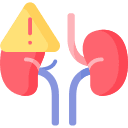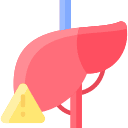(Bold for FDA approved)
 How Nalsup works
How Nalsup works• Blocks mu opioid receptors, preventing exogenous opioids from binding there and thus preventing the pleasurable effects of opioid consumption
• Reduces alcohol consumption through modulation of opioid systems, thereby reducing the reinforcing effects of alcohol
• Can begin working within a few days but maximum effects may not be seen for a few weeks
 Notable Side Effects
Notable Side Effects• Nausea, vomiting, decreased appetite
• Dizziness, dysphoria, anxiety
• Injection site reactions (pain, tenderness, pruritis, induration, swelling, erythema, or bruising); in some cases injection site reactions may be very severe
 Life Threatening Side Effects
Life Threatening Side Effects• Eosinophilic pneumonia
• Hepatocellular injury (at excessive doses)
• Severe injection site reactions requiring surgery

unusual

not usual
• Wait
• Adjust dose
• If side effects persist, discontinue use
• Oral: 50 to 150 mg/day
• Injection: 380 mg every 4 weeks
 Dosage Forms
Dosage Forms• Tablet 25 mg, 50 mg, 100 mg
• Intramuscular formulation 380 mg/vial
• Has been studied in trials up to 1 year
• No
 Renal Impairment
Renal Impairment• Dose adjustment not generally necessary for mild impairment
• Not studied in moderate to severe renal impairment
 Hepatic Impairment
Hepatic Impairment• Has the potential to cause hepatocellular injury when given in excessive doses
• Dose adjustment not generally necessary for mild impairment
• Not studied in severe hepatic impairment
• Contraindicated in acute hepatitis or liver failure
 Cardiac Impairment
Cardiac Impairment• Limited available data
 Elderly
Elderly• Safety and efficacy have not been established
• Some patients may tolerate lower doses better
 Children and Adolescents
Children and Adolescents• Safety and efficacy have not been established
 Pregnancy
Pregnancy• Controlled studies have not been conducted in pregnant women
• Pregnant women needing to stop drinking may consider behavioral therapy before pharmacotherapy
• Not generally recommended for use during pregnancy, especially during first trimester
 Breast Feeding
Breast Feeding• Some drug is found in mother’s breast milk
• Recommended either to discontinue drug or bottle feed
Based on data Published online by Cambridge University Press
Compiled by Dr. Jash Ajmera